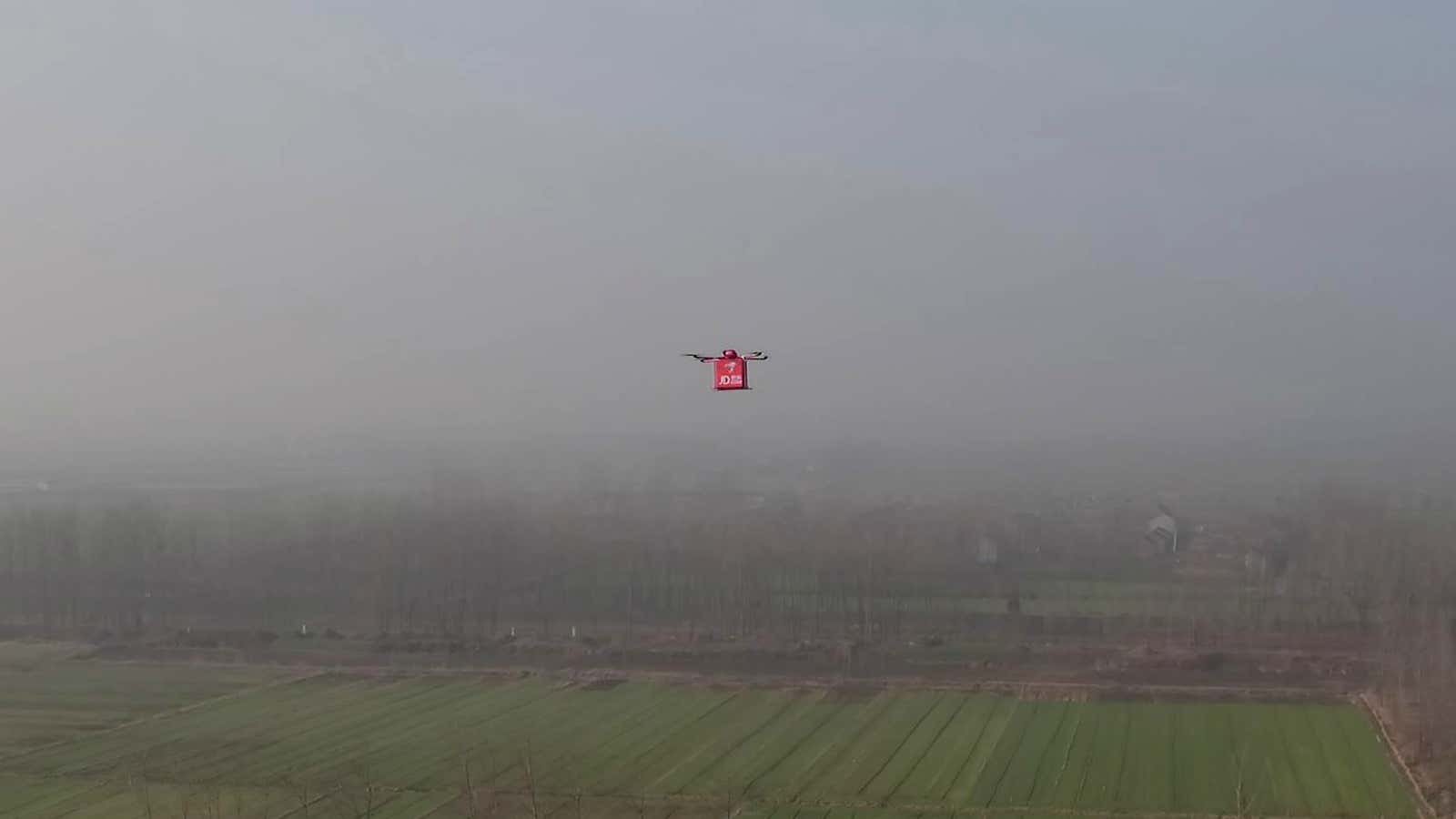China’s biggest online retailers are racing into the hinterlands to gain greater access to the nearly 600 million people that live in rural areas. In the process, the country’s second-largest e-commerce company, JD.com, has become the first major retailer to use delivery drones to get to those hard-to-reach places.
The use of drones and other tactics for getting deep into China’s massive backyard underscores how valuable those hard-to-reach provinces can be for retailers. The biggest volume of online retail sales may come from densely-populated areas such as Guangdong, Jiangsu, and Zhejiang, but the fastest growth has been in smaller, inland communities, where disposable incomes have surged, according to iResearch.
Last month, Alibaba, China’s largest e-commerce company, announced its plan to use Beijing as a gateway to the some 400 million people in the less developed northern territories. JD.com is also eager to reach rural consumers, even starting a program to teach them how to online shop.
In the last year, the company recruited about 150,000 “village promoters” to teach their neighbors how to use its website, paying them a commission for helping to get deliveries to the right homes. But just getting packages to a village can be difficult because of geography and poor road conditions. That’s why the company began using bright red flying robots in a test market—Jiangsu Province—in late 2015.
It’s part of a bid to do for China’s rural towns what e-commerce retailers have already done in urban centers, JD.com spokesman Josh Gartner told Quartz. The challenge is steep, as it includes maintaining quality control and speedy service for areas where freight infrastructure and well-trained personnel are scarce.
“What we’ve discovered is that the places that are very hard to get to, they aren’t far from more developed areas,” Gartner said, adding that in many cases bad road conditions justify the use of drones to get packages to communities just 10 kilometers from bigger cities.
Unlike Amazon’s plan to deliver directly to individual addressess, JD.com is looking to deliver multiple package to a single spot in each village. That means the drones need to be bigger, strong enough to carry multiple packages, and able to travel long distances. The hope for JD.com is to be able to perform same or next-day delivery to far-out villages and difficult-to-reach places.
In November 2015, the company’s CFO, Sidney Huang, told investors that nearly 90% of all JD.com’s direct sales orders are delivered within the same or next day.
“I think that’s a figure, if you ask any competition, it will be luckily half of that, if not less,” Huang added.
